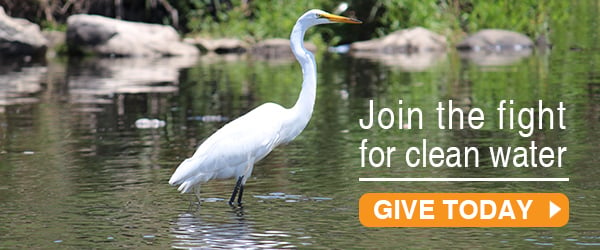- Stop Polluters
- Pollution Enforcement Actions
- American Sugar Refining Penalty
- Beacon: Sewage Pollution
- Enforcement on PIPC NJ Boat Basin Dredging
- Enforcement Success at Millen’s Scrap Yard
- Houghtaling Island
- Irvington Truck Washing
- Lehigh Cement
- Newtown Creek: Allocco Recycling
- Newtown Creek: Empire Transit Mix
- Nycon Supply Corp
- Waterfront Dumping in NYC
- Sewage Contamination
- Beyond Indian Point
- Power Plant Cases
- Contaminated Sites
- Hudson River PCBs
- Greenpoint Oil Spill on Newtown Creek
- Gowanus Canal
- Pollution Enforcement Actions
- Protect River Ecology
- Invasive Species
- Saving the River’s Fish
- Trash Free Hudson
- Champlain Hudson Power Express
- Storm Surge Barriers
- Crude Oil Transport
- Hudson River Anchorages
- Waterfront Development Watch
- Army Corps Channel Dredging, Athens
- Ballpark on Chicken Island, Yonkers
- General Motors Site Redevelopment, Sleepy Hollow
- Greenpoint/Williamsburg Rezoning Project
- Haverstraw Waterfront Development
- Hudson’s Landing (Stuyvesant)
- Kingston Landing
- Landfilling the Hudson North of Battery Park City
- Millennium Pipeline
- Newburgh Proposed Waterfront Redevelopment
- Proposed Rezoning of the East River Waterfront
- Redevelopment Project, Yonkers
- Rensselaear Riverfront Development
- Ridgewood Reservoir in Highland Park, Queens
- St. Lawrence Cement in Hudson
- Tappan Zee Bridge
- United Water New York’s Proposed Desalination Plant
- Waters Edge, Dobbs Ferry
- Proposed Mall in Newburgh
- Clean Boating
- Public Access
- Safeguard Drinking Water
- Drink Tap Water
- Restore & Protect NYC Waterways
- Climate Impacts
- Support Policy Solutions
Crude Oil on the Hudson: What We Are Doing
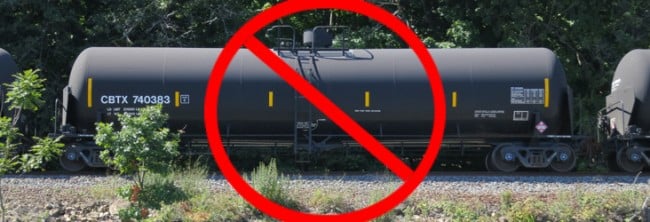
We are researching all aspects of the “virtual pipeline” and executing a multifaceted strategy to reduce or eliminate the risks to the Hudson and our communities.
Model NY Municipal Resolution
-
Hudson River Crude Oil Terminals
Riverkeeper is arguing for the revocation of permits granted without comprehensive reviews under the State Environmental Quality Review Act to Global Partners LP and Buckeye Partners LP for expansions of crude oil terminals in Albany. Riverkeeper is arguing for comprehensive environmental reviews for all current and future proposed expansions of oil terminals in Albany. A previous expansion proposal for New Windsor was suspended due to heavy opposition from environmental groups and the community.
February, 2016 Press Release and Complaint: A broad coalition consisting of the County of Albany, a tenants association, and several environmental groups filed a lawsuit in federal court charging that a major crude-by-rail conglomerate is operating in violation of the Clean Air Act.
Both cases are still pending in court.
-
Crude Oil Train Safety
Thousands of people have joined Riverkeeper in calling for tighter train safety regulations and a ban on the most dangerous DOT-111 “bomb trains.” Riverkeeper has filed these detailed comments as part of U.S. Department of Transportation rulemaking, as we argue for attention to the core issues that cause derailments, including the length, weight and frequency of crude oil trains, and the safety of rail infrastructure.
20150515 Crude by rail rule challenge petition-05-15-15
Crude by rail rule challenge – petition for review (2d Cir.)
PHMSA-rail shipping regulation comments submitted by Riverkeeper and Scenic Hudson, September, 2014
-
The Pilgrim Pipelines
Pilgrim Pipeline Holdings, LLC has proposed to construct two parallel pipelines each up to 20 inches in diameter that would run from Albany, NY to Linden, NJ along the NYS Thruway and through private property. One pipeline would transport crude oil south while the other pipeline would carry refined products north. In total, the pipelines would cover some 170 miles (including five laterals totaling nearly 13 miles), impacting 31 municipalities in Albany, Rensselaer, Greene, Ulster, Orange, and Rockland counties.
The proposal, described in more detail below has the potential for significant environmental impacts according to the New York State Department of Environmental Conservation. The pipelines and its five laterals are proposed to cross the Hudson River twice and every major tributary on the west side of the Hudson, in addition to 232 regulated streams and countless other aquatic resources. Additionally, there will be four pump stations and 215 permanent access roads and temporary access roads at every mile.
The proposal is a risk to the Hudson River, its tributaries and the communities in the path of the proposed project. Concerned with these significant risks, over two dozen cities, villages and towns have passed resolutions formally opposing the construction of the Pilgrim oil pipelines.
Learn more about the proposal and its potential risk at riverkeeper.org/pilgrim
-
Hudson River Anchorage Proposal
Please see our dedicated campaign page regarding the proposal for new Hudson River anchorage grounds here.
-
Spill Response and Recovery
Riverkeeper is arguing for a paradigm shift in the oil spill response industry that will prioritize the prevention and recovery of oil spills over the current focus on response and containment. On the Hudson, we are arguing for an increase in response capabilities along the entire river, and spill drills that prioritize recovery in a worst-case scenario involving sinking heavy crude oil in the upper third of the river.
Riverkeeper and Scenic Hudson Comments USCG-2014-0602 ACP Update 10-10-14
-
Local Government Actions
Many local governments including cities, villages, towns and counties have passed resolutions on critical issues relating to crude oil transport including crude oil trains, the proposed pilgrim pipelines and Hudson River anchorages.
Resolutions:- You can see a complete list of Pilgrim Pipelines resolutions here https://stoppilgrimpipeline.com/resolutions/
- Albany
- Putnam County
- Cold Spring
- Rockland
- Orange
- Orange County Association of Towns, Villages and Cities
- Philipstown
- Ulster
- Newburgh
- Hyde Park
- Cornwall
With more than 100,000 Hudson Valley residents dependent on the Hudson River for drinking water, Riverkeeper has urged community leaders in Dutchess County, Poughkeepsie, Hyde Park, Rhinebeck, Highland and Port Ewen to understand the risks posed by crude oil transport on the Hudson River, and actions they can take to protect their drinking water supplies. Read our letter
-
Public Outreach
Riverkeeper staff travel up and down the Hudson River participating in forums with the public and offering presentations to public officials on the risks and solutions to dangerous crude oil transportation. Some of the factsheets and presentations linked here may include dated information.
-
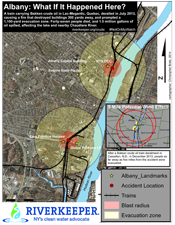
Albany Crude Oil Map, February 2014 -
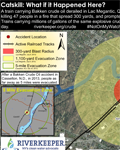
Catskill Crude Oil Map, November 2014 -

Kingston Crude Oil Map, February 2014 -
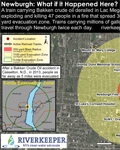
Newburgh Crude Oil Map, November 2014 -
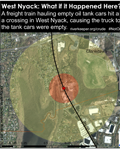
Nyack Crude Oil Map, March, 2014 -
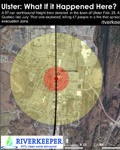
Ulster Crude Oil Map, November 2014
Crumbling Concrete – Failing Bridges? Hudson River at Risk From Crude Oil Transport
WEBINAR: Crude Oil in the Hudson Valley, March, 2014
WEBINAR: Webinar: La Prevención de Un Derrame de Petróleo Crudo en el Río Hudson
The Hudson Valley’s “Virtual Pipeline”
-
Factsheet on Crude Oil
(February, 2014)
-
-
What You Can Do
Thousands of people have spoken out with the help of Riverkeeper’s online action alerts. Check our online Action Center for current alerts to see how you can make a difference.
- Sign up for our e-letters to stay informed about this issue. (Click “Crude oil transport” as an interest.)
- Stay up to date by connecting with us on Facebook and Twitter.
- Write letters to the editor of your local newspaper expressing your concerns.
- Write to your elected representatives to express your concerns.

